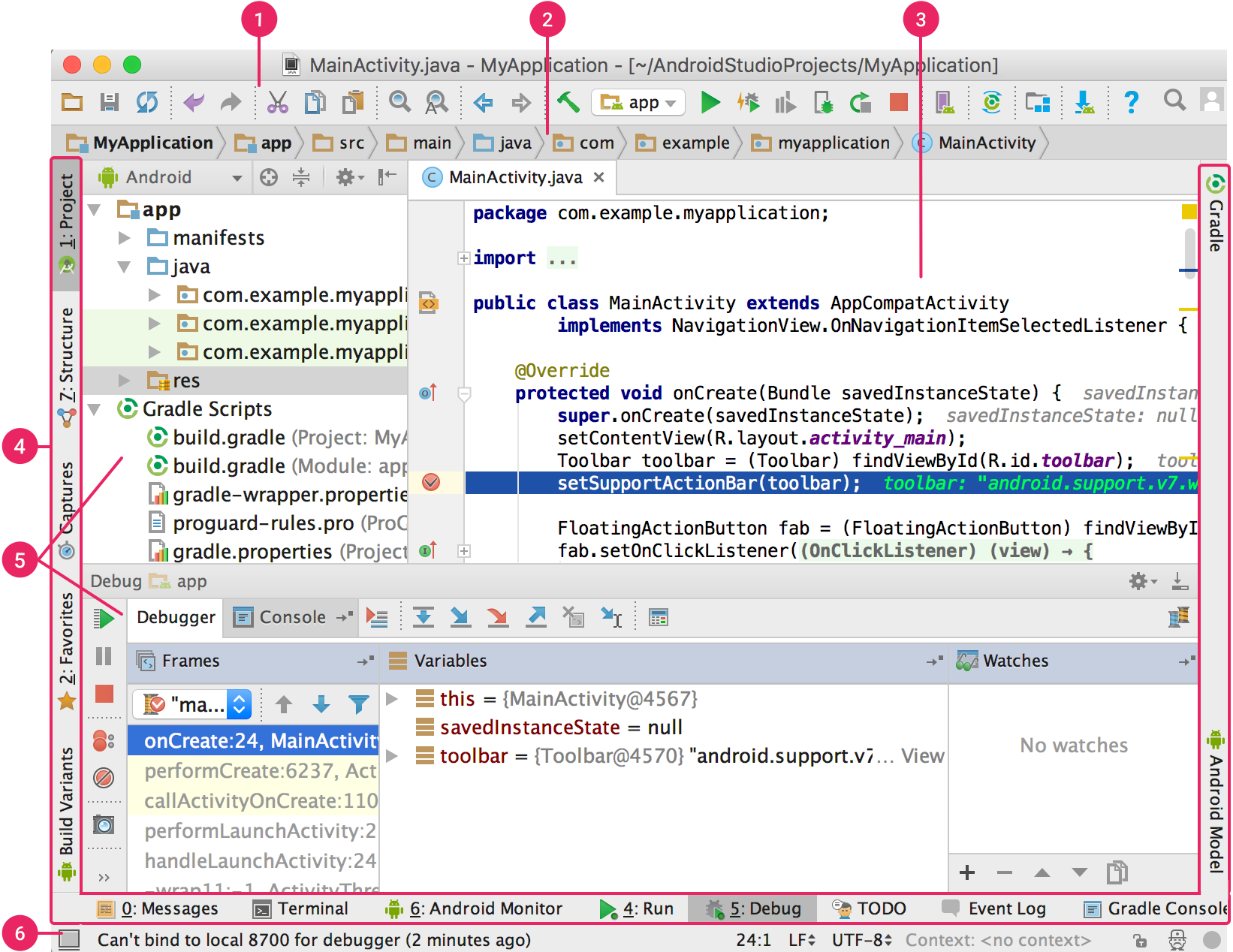Download Android Sdk
8 Google is aiming to create a shake-up in mobile phone operating systems with the launch of its Android platform. Designed to be completely open and free for developers, the API could change the way mobile phone software is used, making all applications equal and combining phone-based data with web tools.


The Android SDK gives mobile software developers the chance to play around with the new platform. It contains everything you need to start building applications, as well as a fully functional device emulator for testing them out when you've finished. Even non-developers can try out the emulator, as it's easy to set up and run (it does take a while to load up, mind you). There is a choice of phone skins and resolutions to tinker with too. After fiddling around for a bit with the OS I must say I'm pretty impressed. Its integration with Google Maps is seamless and only shows to highlight the potential for development of apps that blur the boundaries between phone and web-based software.
This guide shows you how to easily install the Android SDK (Software Development Kit). This guide shows you how to easily install the Android SDK (Software Development Kit). Everything you need to get started with the Android SDK, and everything you need to know about installing it. Android 3.2 SDK now available for download.
Installing software onto the emulator isn't easy and you need to fiddle around with code in order to do so. Although, there's plenty of documentation available online to help you get the most from the SDK, this is still really only something mobile developers will get much use out of, rather than just those curious about how Android applications will look. Overall though, Android SDK provides a fast and reliable development environment for those looking towards the next era of mobile software.
The Android SDK is composed of modular packages that you can download separately using the Android SDK Manager. For example, when the SDK Tools are updated or a new version of the Android platform is released, you can use the SDK Manager to quickly download them to your environment. Simply follow the procedures described in Adding Platforms and Packages. What's New:.
When creating an AVD with avdmanager, it is no longer necessary to specify -tag if the package specified by -package only contains a single image (as is the case for all images currently distributed by Google). There are several different packages available for the Android SDK. The table below describes most of the available packages and where they're located once you download them. Available Packages:. SDK Tools.
Contains tools for debugging and testing, plus other utilities that are required to develop an app. If you've just installed the SDK starter package, then you already have the latest version of this package.
Make sure you keep this up to date. SDK Platform-tools. Contains platform-dependent tools for developing and debugging your application. These tools support the latest features of the Android platform and are typically updated only when a new platform becomes available. These tools are always backward compatible with older platforms, but you must be sure that you have the latest version of these tools when you install a new SDK platform.
Documentation. An offline copy of the latest documentation for the Android platform APIs. SDK Platform. There's one SDK Platform available for each version of Android. It includes an android.jar file with a fully compliant Android library. In order to build an Android app, you must specify an SDK platform as your build target.
System Images. Each platform version offers one or more different system images (such as for ARM and x86). The Android emulator requires a system image to operate. You should always test your app on the latest version of Android and using the emulator with the latest system image is a good way to do so. Sources for Android SDK. A copy of the Android platform source code that's useful for stepping through the code while debugging your app. Samples for SDK.
Download Android Sdk Without Studio
A collection of sample apps that demonstrate a variety of the platform APIs. These are a great resource to browse Android app code.
Download Android Sdk Tools
The API Demos app in particular provides a huge number of small demos you should explore. Google APIs. An SDK add-on that provides both a platform you can use to develop an app using special Google APIs and a system image for the emulator so you can test your app using the Google APIs. Android Support. A static library you can include in your app sources in order to use powerful APIs that aren't available in the standard platform. For example, the support library contains versions of the Fragment class that's compatible with Android 1.6 and higher (the class was originally introduced in Android 3.0) and the ViewPager APIs that allow you to easily build a side-swipeable UI.
Google Play Billing. Provides the static libraries and samples that allow you to integrate billing services in your app with Google Play. Google Play Licensing. Provides the static libraries and samples that allow you to perform license verification for your app when distributing with Google Play. Download links for previous version Android SDK 25.2.3:. Download links for previous version 24.4.1 2015-10-22:. Download links for previous version 24.3.4:.